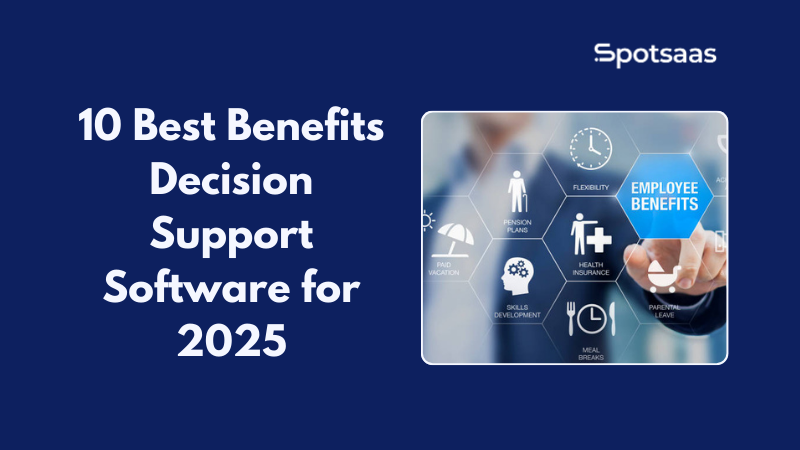Choosing the right spreadsheet software can be daunting, especially with numerous options available. Did you know that choosing a program like Microsoft Excel or Google Sheets could significantly enhance your productivity? This article aims to simplify your decision-making process by discussing various types of spreadsheet software and their must-have features.
Let’s delve into this exciting world of technology so we can help you select the best spreadsheet tool for your needs!
Understanding Spreadsheet Software
Spreadsheet software is a valuable tool for organizing, analyzing, and presenting data in a tabular format. There are different types of spreadsheet software available, each with its own set of features and uses.
Must-have features include the ability to manipulate rows and columns, use formulas and functions, filter and visualize data, and customize formatting. Understanding these features is crucial when choosing the best spreadsheet software for your needs.
Types of Spreadsheet Software
There are many kinds of spreadsheet software. They each have their own tools and uses:
- Microsoft Excel: This is often seen as the best one. It has many features.
- Google Sheets: People like this one because it is easy to share and use on different devices.
- LibreOffice Calc: This is a good online option that you can use for free.
- Apple Numbers: This is a top choice for people who use Apple devices.
- Quip: Quip works well for teams who work together on projects.
- Zoho Sheet: With Zoho, you can do many things and it works with other Zoho apps.
- ClickUp: This software helps groups work together by keeping them organized.
- Airtable, Smartsheet, Stackby, and SeaTable: These options have ways to view your data in different ways.
- Spreadsheets.com and EtherCalc are also worth looking at for your needs.
Must-Have Features
Great spreadsheet software has key features you need for your work. Here are the must-have features to look for:
- Rows and Columns: These let you sort and store data. Tools like Microsoft Excel make it easy to add, remove, or arrange them.
- Formulas and Functions: This is a key feature that makes tasks simple and fast. With software like Google Sheets, you can add up numbers or find an average with ease.
- Data Filtering and Visualization: Good spreadsheet software lets you filter data to find what you need fast. It also shows data in charts or graphs, just as Apple Numbers does.
- Custom Formatting: This lets you change text sizes, colors, and styles to make your work look good.
- Cloud Access: Software like Quip lets you use the cloud to see your files from anywhere.
- Compatibility: You need software that works with lots of file types. LibreOffice Calc is great at this!
- User-friendly Interface: Your software should be easy to learn and use like Zoho Sheet is known for.
Uses of Spreadsheet Software
Spreadsheet software helps a lot in our daily work. People use it to note things down, save data, and plan tasks. This is why we call it a valuable tool for offices.
Yet, you can do much more with spreadsheet tools! You can keep track of spendings or make charts to show your work results. It is great for math problems too because it does calculations fast.
Schools also use spreadsheets to keep an eye on student grades. The uses are many and varied!
Important Features to Consider
When choosing the best spreadsheet software, it is important to consider several key features that will enhance your productivity and efficiency. These features include the ability to manipulate rows and columns, use formulas and functions, filter and visualize data, and customize formatting according to your needs.
By evaluating these features, you can ensure that you choose a spreadsheet software that meets all of your requirements for managing data effectively.
Rows and Columns
Spreadsheet software consists of rows and columns, which are the basic building blocks of organizing data. Rows run horizontally across the spreadsheet, while columns run vertically.
Each cell where a row and column intersect is referred to as a cell. Rows are typically used to represent individual records or data points, while columns are used for different categories or variables associated with the data.
For example, in a sales spreadsheet, each row could represent a sale transaction with columns representing the date, customer name, product sold, quantity, and total amount. The ability to add or remove rows and columns allows for flexibility in managing and analyzing large amounts of information effectively.
Formulas and Functions
Formulas and functions are essential features to consider when choosing spreadsheet software. These tools allow you to perform calculations, automate tasks, and analyze data easily.
Spreadsheet programs like Microsoft Excel and Google Sheets offer a wide range of built-in formulas and functions that can handle complex mathematical operations.
With formulas, you can create equations using cell references, numbers, operators (like + for addition or * for multiplication), and functions. Functions are pre-built commands that perform specific calculations or actions.
For example, the SUM function adds up a range of cells, while the AVERAGE function calculates the average value.
Having robust formula and function capabilities in your chosen spreadsheet software is crucial for processing data efficiently and deriving meaningful insights. Whether you need to calculate budgets, track expenses, or analyze sales figures, having access to a variety of formulas and functions will make your work easier.
Data Filtering and Visualization
Data filtering and visualization are important features to consider when choosing spreadsheet software. With data filtering, you can easily sort and organize your information based on specific criteria.
This allows you to quickly find the data you need and make sense of large datasets. Visualization tools, on the other hand, help you present your data in a visual format such as charts and graphs.
This makes it easier to understand trends, patterns, and relationships within the data. By using these features effectively, you can gain valuable insights from your data and communicate them more effectively to others.
Custom Formatting
Custom formatting is an important feature to consider when choosing spreadsheet software. It allows you to modify the appearance of your data, making it more visually appealing and easier to understand.
With custom formatting, you can change the font style and size, apply colors, add borders, and even create conditional formatting rules. This feature gives you the flexibility to present your data in a way that suits your needs and enhances its readability.
Whether you want to highlight certain values or create professional-looking reports, custom formatting can help you achieve that.
How To Choose the Best Spreadsheet Software
To choose the best spreadsheet software, start by evaluating your needs and considering price and subscription options. Then, test out trial versions of different software and read reviews to compare ratings.
By following these steps, you can find the perfect spreadsheet software for your specific requirements.
Evaluate Your Needs
To choose the best spreadsheet software, you need to evaluate your needs. Take a moment to think about what you’ll be using the software for and what features are important to you.
Consider how many rows and columns you’ll need, as well as if you require specific formulas or functions. Think about whether data filtering and visualization options are essential for your work.
Additionally, consider if custom formatting is necessary for presenting your data effectively. By evaluating your needs upfront, you can select a spreadsheet software that aligns with your requirements and helps you be more productive in managing and analyzing data.
Consider Price and Subscription Options
When choosing the best spreadsheet software, it’s important to consider price and subscription options. Take into account how much you are willing to spend on a spreadsheet program and whether you prefer a one-time payment or a subscription-based pricing model.
Some software offers free versions with limited features, while others require paid subscriptions for full access. Look for discounts or special offers that may be available. It’s also worth considering if the software is compatible with your operating system and if it offers regular updates and customer support.
By carefully evaluating the price and subscription options, you can find a spreadsheet software that fits your budget and meets your needs efficiently.
Test Out Trial Versions
To choose the best spreadsheet software, it’s important to test out trial versions. This allows you to get hands-on experience with the software and see if it meets your needs. You can explore its features, functionalities, and user interface during the trial period.
Take note of how easy or difficult it is to navigate and perform tasks. Pay attention to things like rows and columns, formulas and functions, data filtering, visualization options, and custom formatting capabilities.
By testing out trial versions, you can make an informed decision about which spreadsheet software works best for you without committing upfront.
Read Reviews and Compare Ratings
To make sure you’re choosing the best spreadsheet software for your needs, it’s important to read reviews and compare ratings. By doing this, you can get insights from other users who have already used the software and understand their experiences.
Reviews can provide valuable information about the features, functionality, performance, usability, and compatibility of different spreadsheet software options. Comparing ratings allows you to see which software has been highly rated by others and is considered reliable and effective.
This research will help you make an informed decision when selecting the right spreadsheet software for your specific requirements.
Conclusion: Tips for Finding the Perfect Spreadsheet Software
When choosing the best spreadsheet software, there are a few key things to keep in mind. First, evaluate your specific needs and determine what features are important to you.
Consider the price and subscription options available for each software. It’s also helpful to test out trial versions and read reviews from other users. By following these tips, you can find the perfect spreadsheet software that meets all of your requirements.


